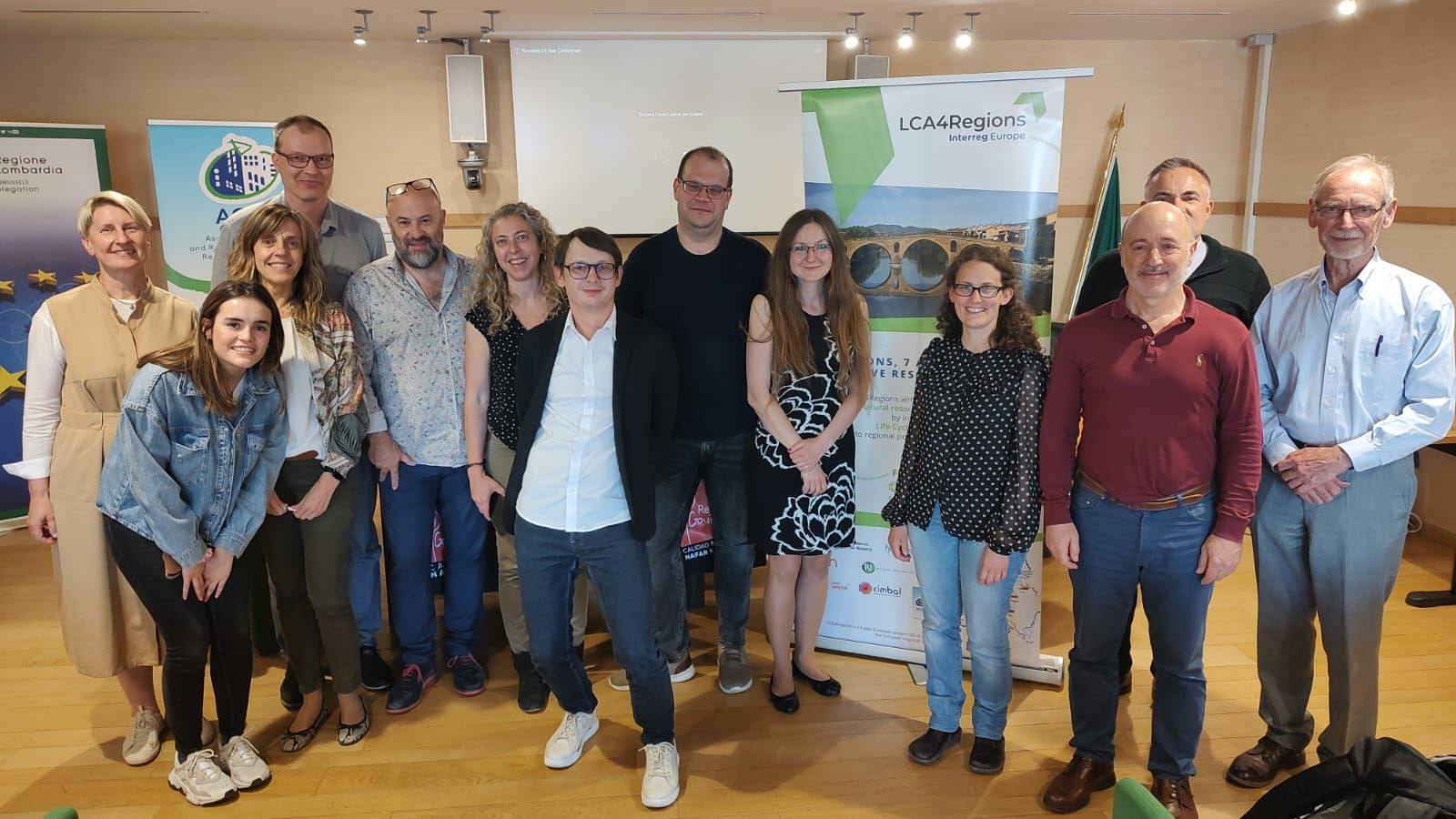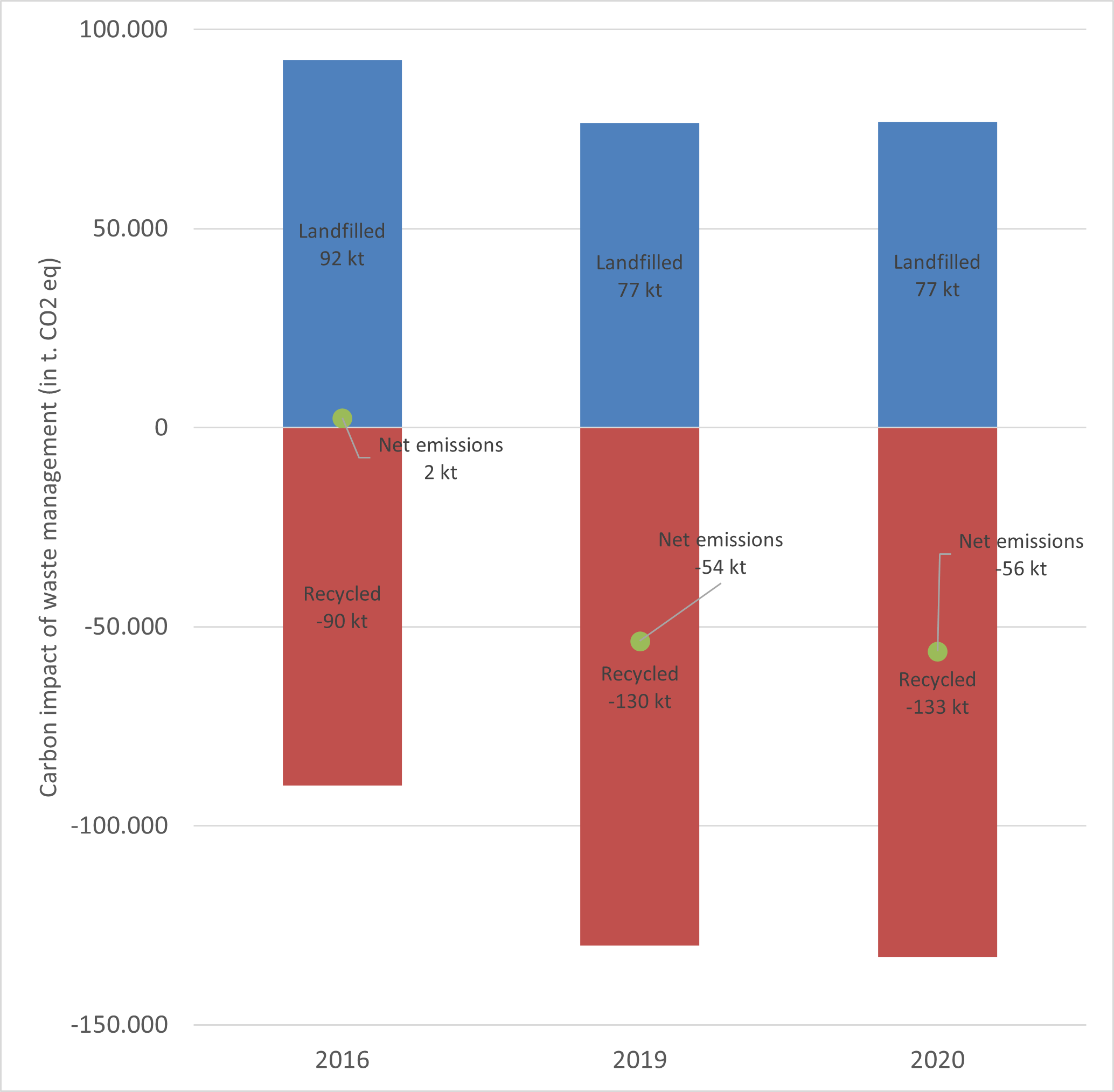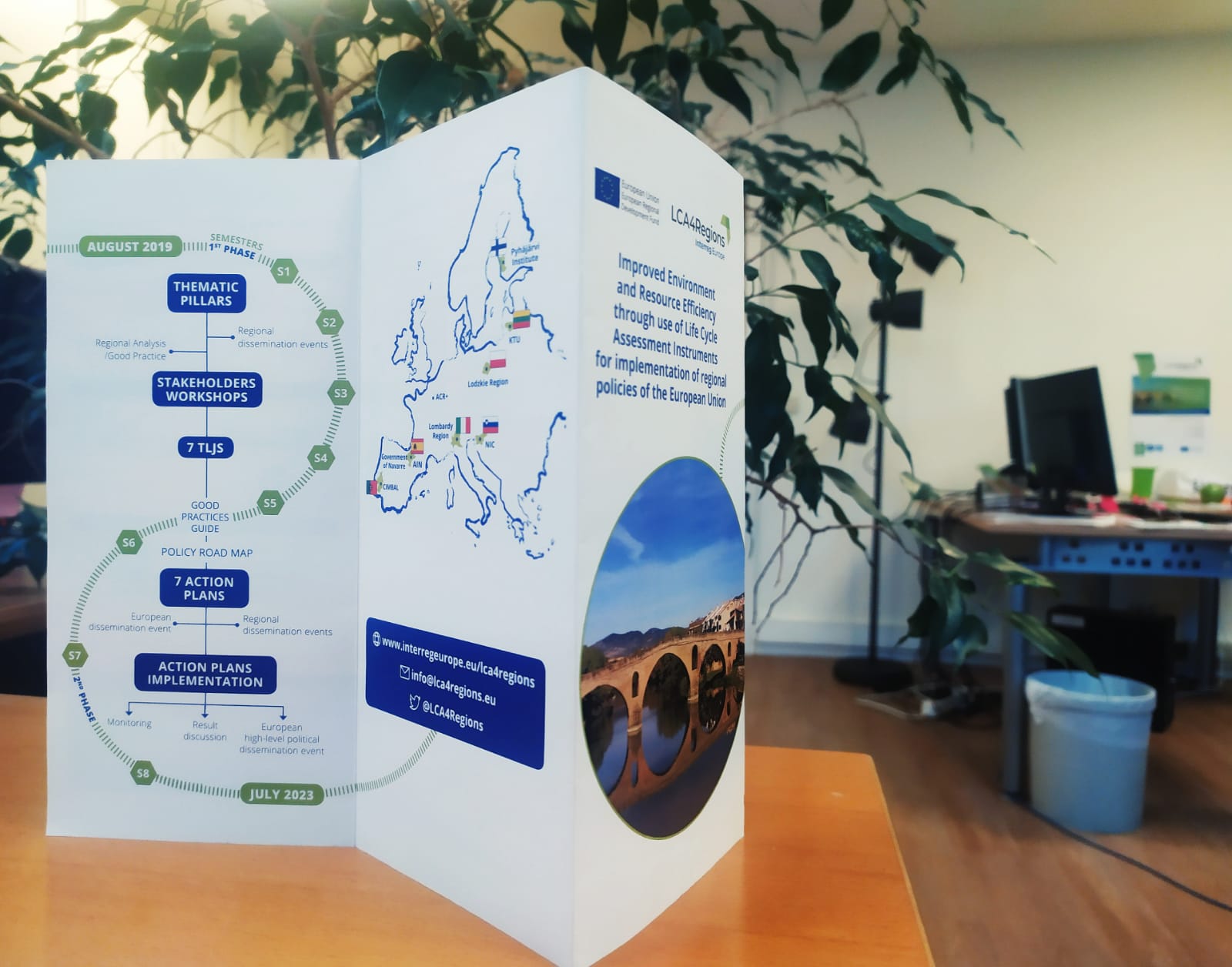On December 3, 2020, the Lodzkie Region organized the 3rd regional stakeholder meeting of the LCA4Regions project. The event took place during the 13th European Economic Forum in Lodz as a part of it. The main topic of the 3rd RSE was ECO-DESIGN IN THE FRAMEWORK OF SUSTAINABLE BUSINESS. The meeting was held online and gathered 5 stakeholders, Lodzkie Region representatives and about 50 participants online.
The aim of the meeting was to discuss and show opportunities offered by circular economy and the use of LCA taking into account eco-design issue. Eco-design is also the basis for the development of the circular economy (CE). According to the CE concept the impact of manufactured goods on the environment should be minimized through the selection of materials that enable their reuse and minimize the production of waste.
Lodzkie Region participates in several projects in this area. One of them is LCA4Regions which focuses on life cycle assessment and its application in public policies. During the meeting many impacts of eco-design were discussed. The meeting was chaired by Mrs Katarzyna Grabowska – Prof., Dean of the Faculty of Materials, Technology and Textile Design at the Lodz University of Technology, President of the World AUTEX Association (www.autex.org) and Vice President of the International European Textile Platform Association in Brussels (www.textile-platform.eu). The meeting was also attended by:
- Mrs Joanna Kulczycka - Professor at the AGH University of Science and Technology, Vice-Dean for Cooperation and Development of the Faculty of Management and head of the Strategic Research Laboratory at the Institute of Mineral Resources and Energy Management of the Polish Academy of Sciences.
- Mr Piotr Brzeziński - Director of Research and Development Office in VIVE Textile Recycling Company - one of the biggest european textile recycling companies. Expert in the field of investment consulting and enterprise restructuring.
- Mr Radosław Dziuba, PhD, - Director of the Institute of Biopolymers and Chemical Fibers “Łukasiewicz Research Network”. An expert in the field of knowledge commercialization, absorption of EU funds and regional specializations. Assistant professor at the Department of World Economy and European Integration at the University of Lodz.
- Mr Bartłomiej Zgorzelski - Founder of BZB Projekt - a multi-discipline design studio specializing in risk analysis for real estate and infrastructure investments. Participant in the process of area revitalization of the new centre of city of Lodz. project. Member of the Management Board of Lodz Chamber Industry and Commerce.
During the discussion, the stakeholders presented many interesting thoughts.
Mr. Piotr Brzeziński, as a representative of entrepreneurs, noted that in order to make companies waste-free, cooperation between business, the public sector and scientists is extremely important.
Ms Joanna Kulczycka pointed out that the entire future supply chain and connections should be taken into account in the eco-trimming process, so a holistic approach is necessary. In this chain, regional suppliers must be included, enabling regions to develop.
Mr. Bartłomiej Zgorzelski emphasized that it is particularly important in the context of urban areas where local communities and suppliers are factors of success.
In the course of further discussion, it was pointed out that also responsibility, including the costs of ecodesign, should have a holistic dimension. This means that they cannot be passed on to the consumer alone.
Prof Grabowska noticed that in the whole process we can use the experience of other countries. Public sector increasingly requires eco-design elements in public procurement and life cycle costing.
The participants of the meeting also tried to answer the question: what else can be done with the product? Reduce the weight of the package? Increase the proportion of recycled materials? Today, the transfer of technology from the laboratory to the factory remains a challenge. It is also sometimes difficult to implement what comes out of the laboratories. Perhaps a solution could be a closer look at the economy of services and increasing the role of borrowing rather than buying. It was also noted that the role of recyclers is still growing, the same as their role in eco-designing. Currently, even new industries dedicated to recycling are being created.
Education is another important area. Some universities already have compulsory eco-design seminars which are very popular among young people and entrepreneurs. This is surely our hope for the future. Equally important is the awareness of the society and consent to change.
The conclusions from the meeting can be many but the most important is that we should cooperate together and show the public simple, measurable, and not abstract examples of eco-design because they are more appealing than theory.










